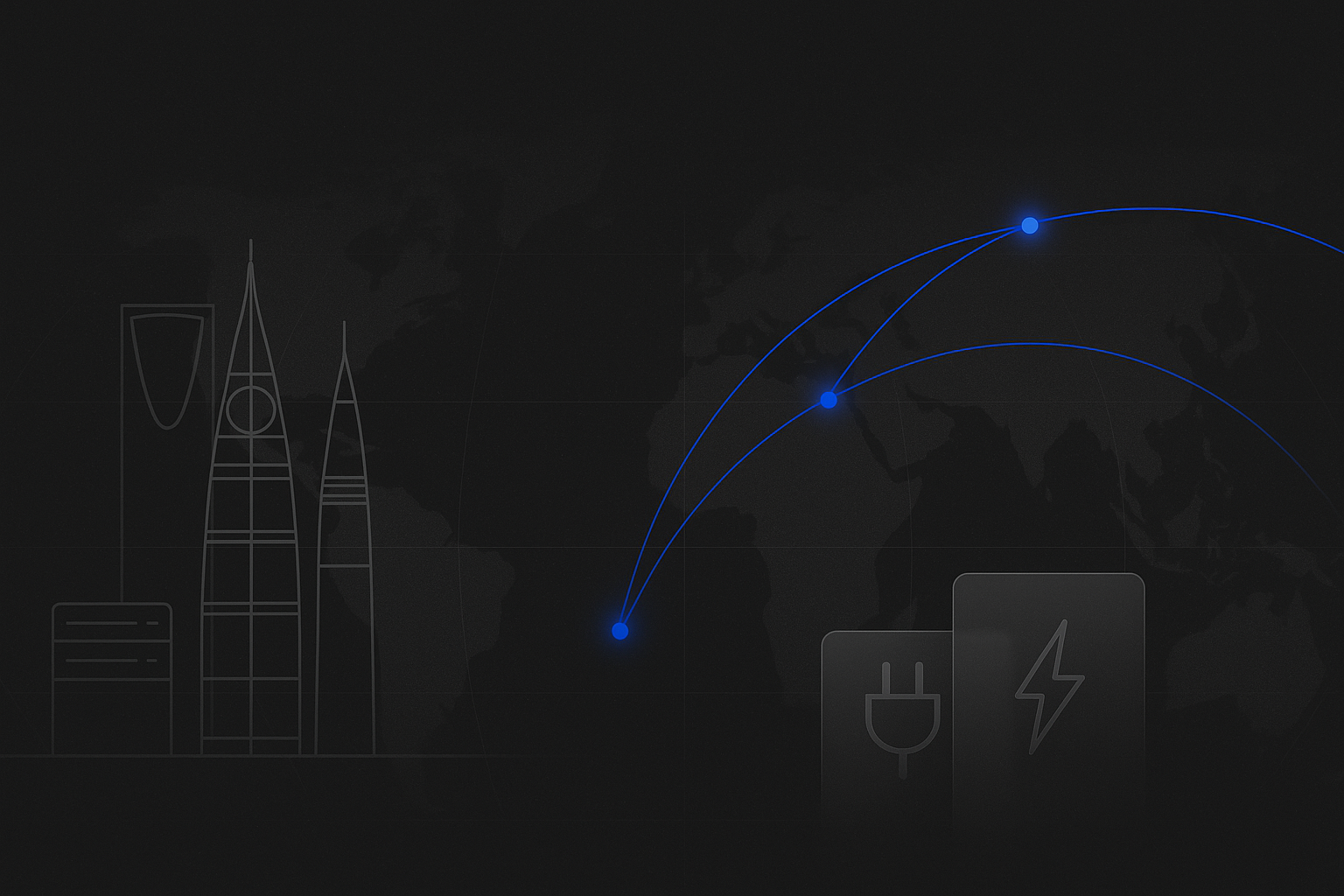Saudi Data Center Advantage: Turning Desert Power Into Cheaper Cloud
Saudi Arabia's dedicated cloud tariff is cutting megawatt-scale costs in half and reshaping API economics for hyperscalers.
Listen to Saudi Data Center Advantage: Turning Desert Power Into Cheaper Cloud

Why Riyadh Is On Every Hyperscaler's Map
Saudi Arabia now offers a dedicated cloud computing tariff hovering around $0.048 per kilowatt-hour (0.18 SAR/kWh). Set that beside the United States industrial average of $0.093, or the $0.25 utilities bill in coastal hubs like California, and the economics speak loudly. Electricity routinely accounts for 20-40% of large-scale data center operating expenses; slicing the rate in half cascades through every API invoice those facilities ultimately support.
For a seemingly modest 1 MW deployment, the math looks like this:
- Texas (0.066 $/kWh): roughly $61,700 per month in power costs.
- Saudi Arabia (0.048 $/kWh): roughly $44,900 per month.
That $16,800 spread compounds to about $200,000 in annual savings per megawatt. Take the same gap across 100 MW—the footprint of a frontier AI training cluster—and you're staring at $20+ million shaved off the power bill before you even negotiate hardware.
How Those Savings Reach API Buyers
Narrow margins drive ruthless optimization. Once operators shift workloads toward cheaper electrons, customers tend to feel it in at least four ways:
- Lower per-call pricing: providers use cost advantages to capture or defend market share.
- Richer features: teams can roll out GPU-heavy models without watching unit economics implode.
- Faster scale globally: more cash can go into new regions and peering agreements, not utility bills.
- Better latency for emerging markets: placing compute nearer to Africa, South Asia, and the Middle East removes the 150+ ms tax of routing everything through Virginia.
Why The Kingdom Has Momentum
Cheap power is the headline, but it is reinforced by deliberate policy moves designed to woo hyperscalers.
- Predictable Tariffs: the subsidized cloud rate is part of Vision 2030's industrial policy playbook, insulating operators from natural gas price spikes that rock U.S. and European grids.
- Geographic Sweet Spot: Riyadh sits within fiber reach of three continents; the Gulf Cooperative Council submarine cable mesh keeps latency under 80 ms for billions of end users.
- Engineering Around Heat: dry desert air, indirect evaporative cooling, and large-scale thermal storage let facilities keep their PUE targets even when the temperature hits 45 degrees C.
- Government-As-Partner: fast-track permitting and land allocations reduce the soft costs that typically hold projects in limbo.
Real-World Signals
This pivot is not theoretical. Oracle launched a Jeddah cloud region in 2022. Alibaba Cloud followed in Riyadh. Microsoft, AWS, and Google Cloud have each announced Gulf build-outs, often anchored by partnerships with Saudi sovereign funds. Meanwhile, AI-native startups are colocating training clusters near solar-plus-grid campuses to chase lower inference costs.
Expect these milestones over the next 24 months:
- Silent workload migrations followed by headline-grabbing price cuts from API leaders.
- Joint ventures pairing global hyperscaler know-how with regional energy asset owners.
- Latency guarantees under 50 ms marketed to Africa-to-Asia corridors that have historically lagged.
Questions Teams Still Need To Answer
None of this erases due diligence. Every move demands clear-eyed evaluation of:
- Data residency and sector-specific compliance rules.
- Political and regulatory stability relative to incumbent markets.
- Renewable procurement paths for companies with hard sustainability targets.
- Depth of local talent and willingness of global teams to relocate or commute.
- Redundancy plans across multiple Gulf states for disaster recovery.
Yet when the power bill is 30-50% lower, these challenges become solvable line items rather than vetoes. Economic gravity does the persuading.
The Takeaway
Saudi Arabia is betting that in an AI-driven decade, being the world's lowest-cost electricity host for compute is as strategic as controlling oil flows was in the last century. If you run an API business, negotiate cloud contracts, or simply monitor monthly GPT spend, keep an eye on Riyadh's grid. The cheapest query you fire in 2026 may originate from the desert—and your finance team will thank you for it.